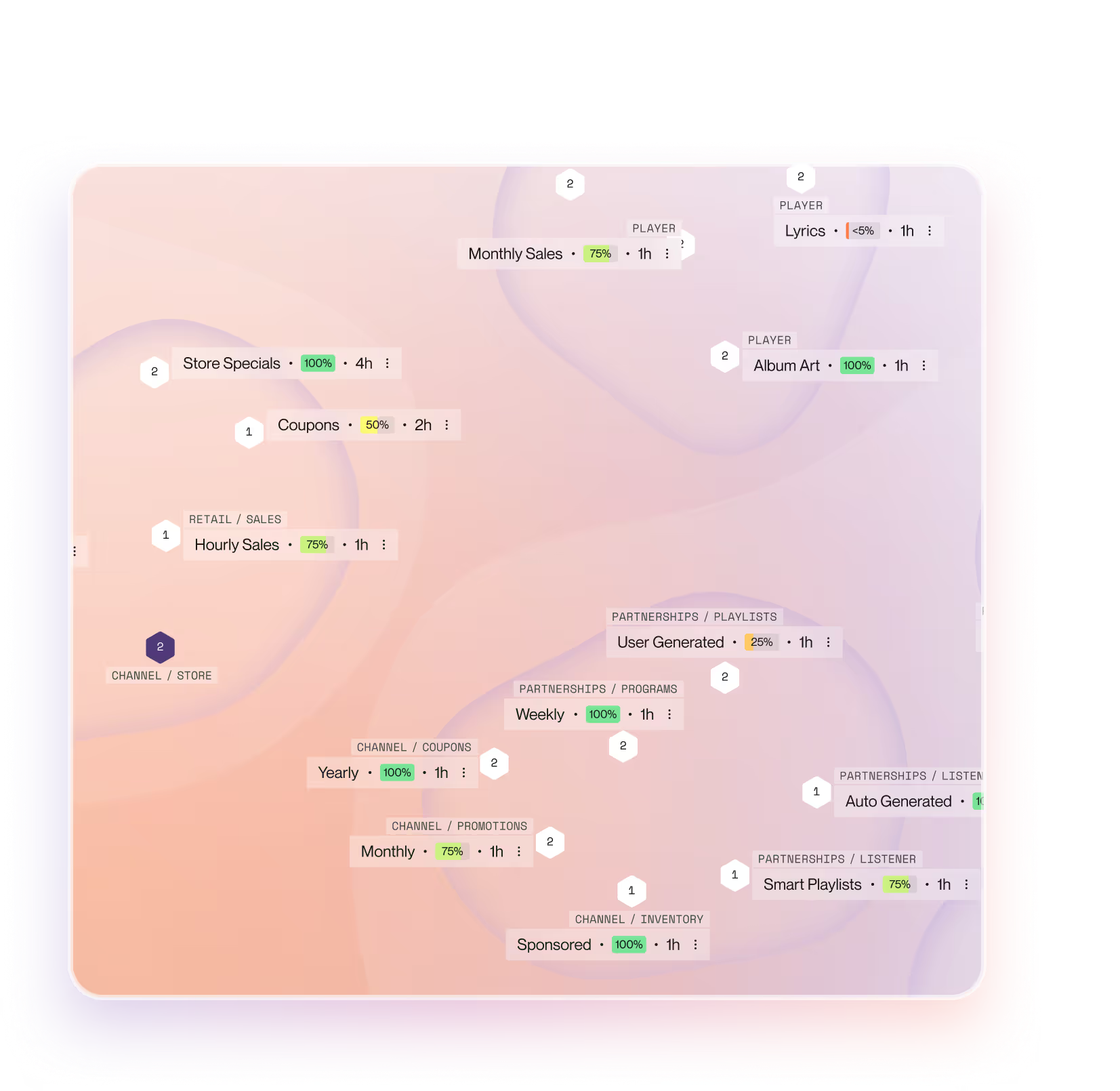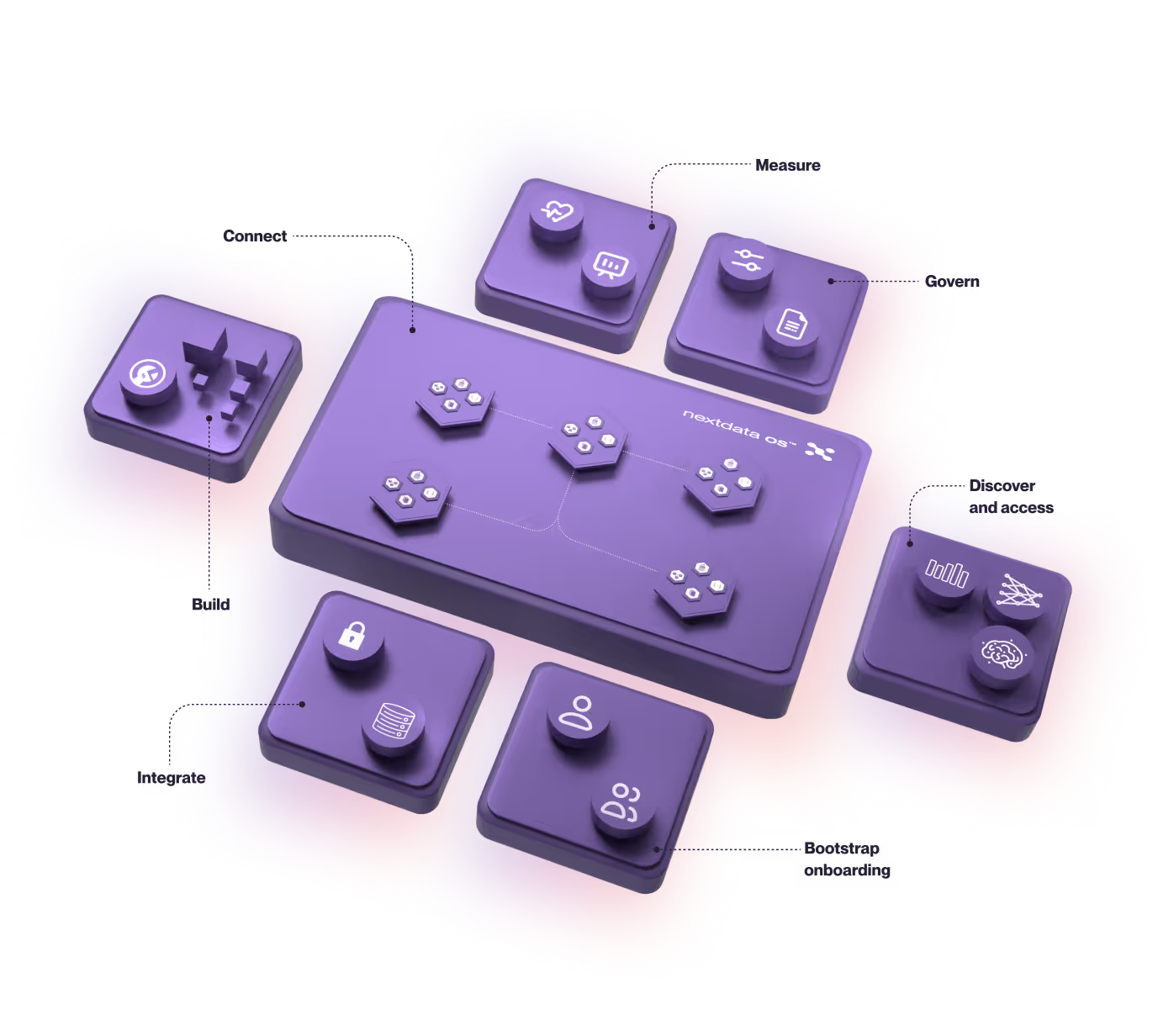
Finally, a unified and automated data management approach for unstructured and structured data that works for AI (and everything else.)
Nextdata wraps your enterprise data into autonomous data products, instantly usable by AI. Stop plumbing. Start shipping.













Complicated pipelines, monolithic bottlenecks, fragmented data tooling, glued together by hand can’t keep up with AI.

Storage-centric, schema-first, and built for human use, conventional data stacks fall short for AI agents, which need domain-oriented, semantic-rich, context-aware data, all accessible through a single API.

After-the-fact data quality checks and manual governance, without built-in lineage, risk agents making mistakes that scale at machine speed.

One platform to build, run, and manage autonomous data products for agents, analytics, and ML
Wrap and standardize everything from ingestion to access in autonomous, AI-ready data containers: self-governing, serving any format—structured or unstructured—and automatically discoverable on any data stack. TLDR: Shift left and automate.





create data product from https://amazon- reviews-2023.github.io/ in retail domain
I'll help you create a data product for Amazon reviews data in the retail domain. Let me start by examining the website and understanding the available meshes.
Fetch(https://amazon-reviews-2023.github.io/)
Received 51KB (200 OK)
└ demo
Now let me get the available services and DSL grammar for the demo mesh:
Nextdata:get_available_services (MCP)(mesh_name: "demo")
└ {
"mesh_name": "demo",
"infrastructure_profiles": [
… +60 lines (ctrl+r to expand)
]
}
Nextdata:get_dsl_composition_grammar (MCP)(mesh_name: "demo")
└ {
"status": "success",
… +227 lines (ctrl+r to expand)
}
Copilot-generate a mesh of interconnected autonomous data products from new and existing data assets, safely usable for RAG, MCP or whatever comes next.
Give all your domain teams a single platform to parallelize data product generation at scale—enabling them to create, use, and manage AI-ready data safely, flexibly, and with the tools they already use.

Domain-oriented, semantic-first, multimodal data—discoverable and accessible from a single endpoint, compatible with both agent protocols and human interaction.
Detects changes in data sources, computational policies and access and automatically orchestrates data processing, quality and compliance checks (before they become disasters or out of date).
A unified data product standard — across all data stacks, data formats and use cases.
Encapsulate and run all of data management in a simplified unit.
Automatically bootstrap from existing code and data. (no more replatforming)
Eliminate complex data pipelines, unnecessary data layers, handoffs and dropped balls. Just build what matters.
Time to first use for safe, autonomous data products for AI or analytics
Continuous enforcement of computational governance, not just monitoring
To onboard a new business domain and enable governed self-service on their data stack
